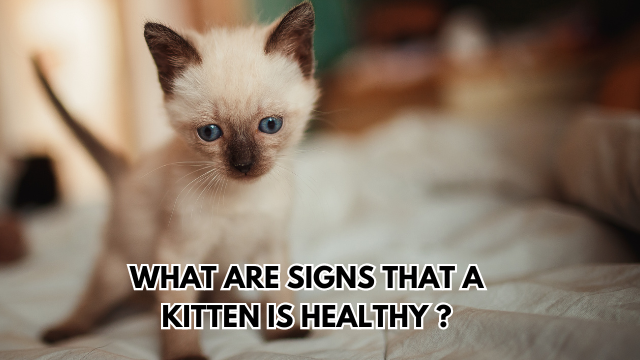According to PetMD, kittens can vocalize more frequently than adult cats, often leaving new pet owners confused about what those sounds actually mean. Is my kitten crying ? Or is it just a regular meow?
Understanding the difference between your kitten’s vocalizations is crucial for knowing how to respond and make sure your little kitty is happy and healthy.
In this article, we’ll help you figure out whether your kitten is crying or just meowing. By recognizing the distinct sounds and behaviors associated with each, you’ll be able to give your kitten the care and attention they need.
- The Difference Between Crying and Meowing
- Understanding Kitten’s Body Language
- How to Respond to Your Kitten’s Crying
- Bonus Tip
What’s the Difference Between Kitten Crying and Meowing?
Before diving into specific signs, it’s essential to know that meowing and crying are both forms of communication. The key difference lies in their intensity and meaning.
Meows are typically soft, short sounds used to get your attention, ask for food, or say “hello.”
On the other hand, crying tends to be louder, more frequent, and often signals distress.
As explained by VCA Animal Hospitals, kittens cry when they’re experiencing discomfort, whether it’s physical or emotional. They might be lonely, scared, hungry, or in pain.
Understanding these distinctions can help you respond appropriately and meet their needs.
When Is Your Kitten Meowing ?
Let’s first talk about meowing. Kittens meow for several common reasons, and learning these will help you distinguish between a typical meow and an actual cry.
a) Attention Seeking
Your kitten may simply be trying to get your attention. Maybe they want to play, be petted, or follow you around the house.
If the meow sounds more like a gentle “hello” or “look at me,” they probably just want to interact with you.
As reported by The Spruce Pets, kittens often associate their owners with comfort and safety, which means they’ll meow to ask for some quality bonding time.
b) Greeting You
Ever come home after a long day and find your kitten meowing at the door?
That’s usually a greeting meow. This sound is typically short and repetitive, showing that your kitten is excited to see you. It’s not a cry, just a simple, friendly welcome.

c) Curiosity or Exploration
Kittens are naturally curious, and if they’re meowing while exploring, they’re probably just investigating their surroundings.
A curious meow might sound inquisitive and come in short bursts as they wander around the house. This is usually nothing to worry about.
When Is Your Kitten Crying?
Crying, on the other hand, signals distress or an urgent need. Here are some situations where your kitten might actually be crying:
a) Hunger
One of the most common reasons a kitten cries is because they’re hungry.
If it’s been a while since their last meal, and they’re crying persistently and loudly, they might be trying to let you know they need food.
According to PetMD, kittens have small stomachs and need to eat several times a day. Ignoring their hunger cues can lead to more intense crying.
b) Loneliness
Kittens are social creatures, especially when they’re young and have recently been separated from their mother or littermates.
If your kitten is crying loudly and often, particularly at night, they might be feeling lonely.
Based on expert advice from the ASPCA, this type of crying often happens when kittens are first introduced to a new home.
You can try offering a soft blanket or stuffed animal to mimic the feeling of warmth and companionship.
c) Discomfort or Pain
If your kitten suddenly starts crying out of the blue, they could be in pain.
Crying due to discomfort tends to be more high-pitched and prolonged. It could be anything from an upset stomach to a more serious medical condition.
If your kitten is crying persistently, checking for other signs like limping, excessive grooming of one area, or hiding could give you a clue.
As mentioned in Cats Protection, any unexpected or loud crying should prompt a visit to the vet to rule out health issues.
Understanding Your Kitten’s Body Language
Sometimes, it’s not just about the sound your kitten is making, but also about what they’re doing with their body.
Observing your kitten’s body language while they meow or cry can give you further insight into how they’re feeling.
a) Relaxed Posture
If your kitten is meowing while casually walking around or sitting near you, it’s probably a relaxed and normal meow.
Their body language will be loose and comfortable, with no signs of tension.
This indicates that your kitten is simply communicating in a non-urgent way, likely asking for food, playtime, or attention.
b) Tense Body or Tail
Crying often comes with more intense body language. If your kitten is huddled in a corner, their tail is tucked, or they seem tense and frightened, their crying could be a response to fear or anxiety.
As explained by The Humane Society, cats often puff up or hide when they feel scared, so pairing these behaviors with crying likely means your kitten is distressed.
c) Restlessness
If your kitten is crying and pacing around or scratching at the door, they might be signaling that they need something, such as food, attention, or a bathroom break.
Restless behavior paired with crying indicates an urgent need, and it’s important to respond quickly.

How to Respond to Your Kitten’s Crying
Once you’ve identified that your kitten is crying rather than meowing, it’s time to take action. Here are a few ways to respond:
- Check if they’re hungry: If it’s been a few hours since their last meal, offer some food. Kittens need more frequent meals than adult cats.
- Provide comfort: If your kitten is feeling lonely, spending time cuddling or offering a soft, warm blanket can help calm them down.
- Play with them: Sometimes, crying is a signal that your kitten is bored. A few minutes of playtime can help distract them and burn off excess energy.
- Visit the vet: If the crying persists or you notice any signs of illness or injury, take your kitten to the vet to rule out any health concerns.
Bonus Tip: Use Positive Reinforcement
When responding to your kitten’s cries, always use positive reinforcement.
Reward them with attention, food, or playtime when they meow for appropriate reasons.
This can help teach your kitten that meowing leads to positive outcomes, while excessive crying might not always be rewarded.
Read: My Kitten Won’t Stop Meowing, What to do?
Knowing the difference between a kitten’s meow and cry is key to ensuring their happiness and health.
While meowing can often indicate simple requests for food, attention, or play, crying usually signals something more urgent, like discomfort, hunger, or loneliness.
By paying attention to both their vocalizations and body language, you can better understand what your kitten needs.
Over time, you’ll learn to recognize the subtle differences in your kitten’s sounds, making it easier to care for them and meet their needs.
And remember, if you ever feel unsure about your kitten’s behavior, don’t hesitate to consult with a vet or feline expert for guidance.***
Watch Videos about Cat & Kitten Care on Youtube @naowthecat